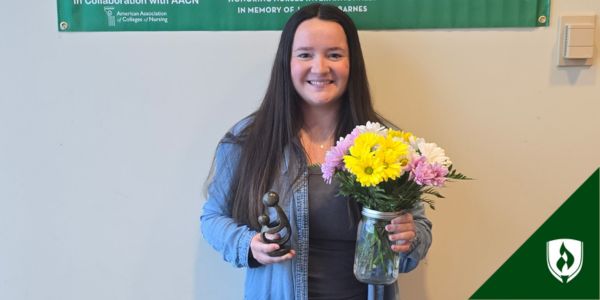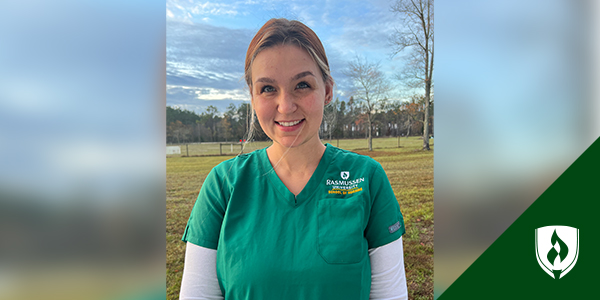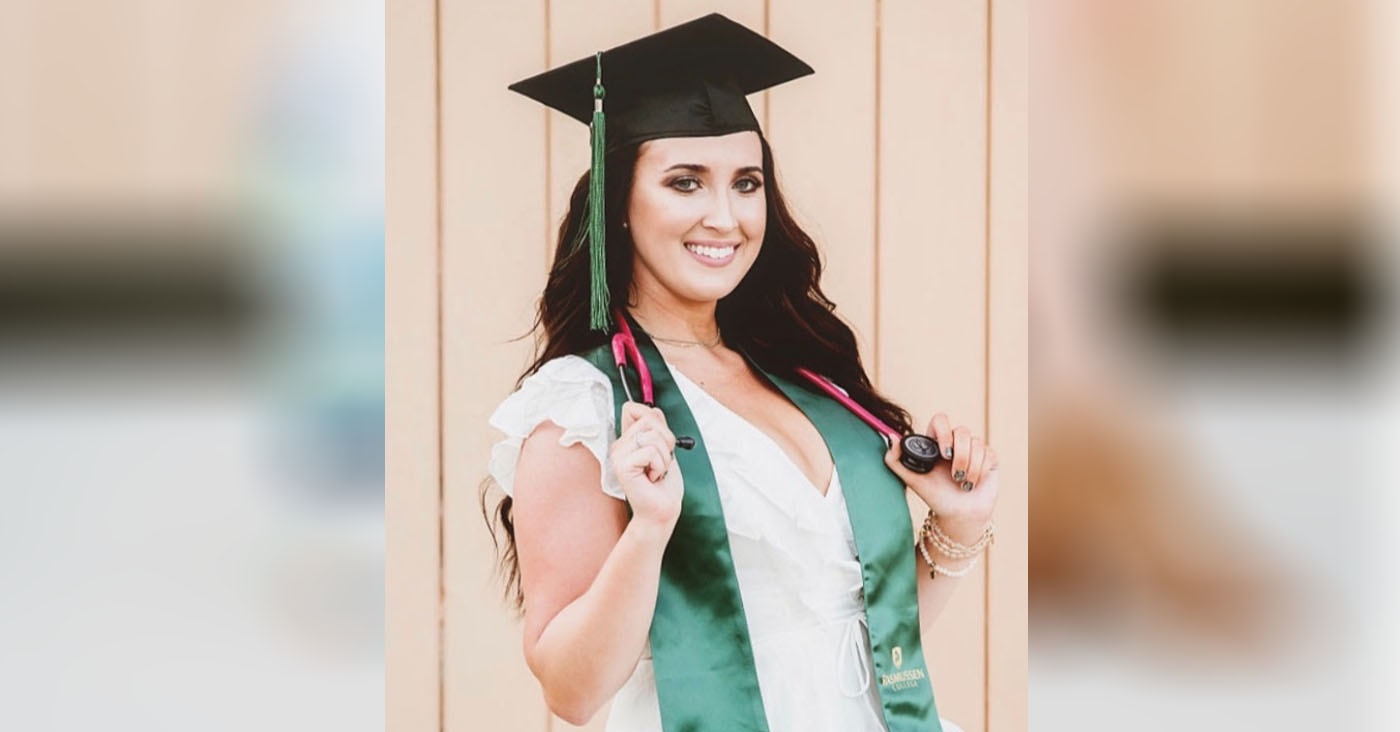
When Lindsay Furr was young, she loved spending time with her grandma, watching medical dramas like “ER.” She was fascinated by the medical aspects of the show. She wasn’t grossed out like other kids might have been. She even got some hands-on experience. Her grandma had diabetes and taught Lindsay how to administer her insulin. Not only did this encourage Lindsay to pursue her medical interests, it made her confident in her ability to succeed.
“My grandma always encouraged me and made me think I could be someone who could take care of other people,” says Lindsay.
Growing her resilience
Lindsay was confident in her decision to become a nurse, but she wasn’t so sure about nursing school. She initially started nursing school at another institution but wasn’t able to make it work. “My brain wasn’t focused. I couldn’t commit to the workload of nursing school,” she says.
Lindsay took a year off school, got her nurse assistant certification, and found a job as a patient care technician (PCT) at Tampa General Hospital. When one of her former classmates told Lindsay about her experience at Rasmussen University, Lindsay was intrigued. They were similar in the way they thought and processed questions, so Lindsay took her friend’s advice. “I decided to give Rasmussen a try,” she says.
Starting again wasn’t easy. Lindsay had to retake a few prerequisites, but she found her footing. “Even though I felt like nursing school wasn’t ever going to end, I actually really enjoyed it,” she said. This time around, she found an organizational system that worked for her—and even made close friends in the program.
Having gained valuable patient care experience as a PCT, she was more comfortable interacting with patients at clinicals than many of her classmates. “My classmates would be scared out of their minds interacting with patients and I would have already done that a million times,” says Lindsay.
Lindsay continued to work as a PCT while in nursing school to help her pay bills. It was tough. “I had to have no life for months at time.” She often felt guilty for taking days off but found strategies to make the most of her study time. She would record her classes and listen while she got ready for the day—even listening to lectures when getting her eyelashes done.
Graduating pandemic-style
Even though nursing school wasn’t easy, Lindsay’s parents encouraged her the whole way. “My parents are completely supportive of everything I do,” she says.
Her close cousin, who she calls her sister, stood by her side throughout school as well. Lindsay also credits her emotional support dog, who brought her joy when things got tough.
Lindsay kept putting one foot in front of the other and finished her final nursing clinicals during the COVID-19 pandemic, but that didn’t stop her from graduating. She even attended her pinning ceremony in a “drive-by” style.
After graduation, there was still the NCLEX to pass. As she exited the 6-hour exam, she bawled, convinced she had failed. When she found she had passed, Lindsay was thrilled—so excited to finally be a registered nurse. “Rasmussen really did prepare us for [the NCLEX] even if it was like pulling teeth out of our heads,” she jokes.
Working in the ER
Through nursing school, Lindsay wasn’t sure what area of nursing she wanted to work in. She had considered pediatrics but just wasn’t sure. A friend encouraged her to apply for a new grad residency in the emergency department at Tampa General. She was nervous, never having expected to work in the ER. Due to the pandemic, she had had few in-person clinicals, and had never placed an IV in a real human before, only in a dummy arm
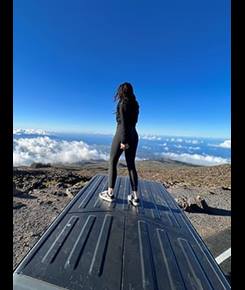
Though she was initially nervous, she ended up becoming skilled at IVs and finding her footing in the ER. She learned how to quickly asses the acuity of her patients' needs and prioritize treatment.
There, she met her friend, Holly, who she calls her “twin,” who left the hospital to start travel nursing. Lindsay was curious and started asking Holly questions about travel nursing. They decided to travel together to offset costs.
First, they traveled to Minnesota for an assignment before they decided to set their sights on somewhere warmer. They received a FEMA assignment in Maui, Hawaii, for ten weeks working with COVID-19 patients.
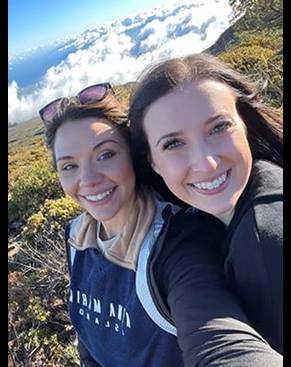
Talking mental health
Though working in Hawaii was beautiful, Lindsay found herself missing home and family, especially with a six-hour time difference and no time to fly home for a quick visit.
Though the benefits of travel nursing have been incredible, Lindsay hopes to buy a house and take travel assignments closer to home in Florida to support her own mental health. “It’s more important to take care of yourself and your mental health than to keep a job,” says Lindsay. “I really want to find my peace.”
She encourages other nurses and nursing students to prioritize their well-being, too.
“You need to take care of your mental health. You need to do what’s best for you—especially in nursing.”



